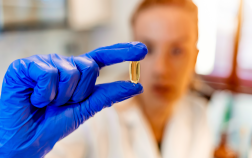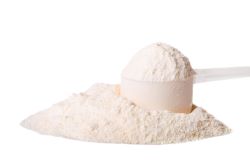
J. David Legan, PhD
Director of Science
David earned his Ph.D. in Food Technology from the University of Reading in the UK by modeling the ecology of mixed microbial populations, and then moved to Campden BRI in a variety of microbiological food safety research and client service roles. During that time, he was project lead for the Bacillus component of the UK’s pathogen modeling program. He moved again to Nabisco Research in New Jersey where he ran the corporate microbiology lab and developed a program of preservation technology development and microbial modeling. After the Kraft Foods acquisition, he moved to Chicago to work on Food Safety and Preservation research, and through modeling and validation studies:
- Optimized Oscar Mayer’s use of lactate and diacetate and their naturally cultured alternatives as Listeria-control agents in Ready to Eat meats
- Specified process conditions central to Oscar Mayer’s commercial launch of High Pressure Pasteurization of naturally cured RTE meats
David had responsibility for the Kraft cultures R&D group, developed a partnership to explore microwave sterilization leading to several patents, and led a program that developed an internal proprietary natural antimicrobial commercialized in several Kraft products. Technologies from his group supported approximately $4 billion in annual sales.
After years as a microbiology "client", he is now back in the "provider" role as Director of Science at Eurofins Microbiology Laboratories, Inc., by way of the Covance Food Solutions group based in Madison, WI, which he joined in 2016. In this role, he ensures appropriate method validation, explores new testing technologies, and fields multiple complicated food microbiology questions.
Products that his team has evaluated or developed and launched include:
- The 3M MDS platform in the Madison microbiology laboratory
- Flow cytometry for enumeration of probiotics
- Strain-level confirmation of probiotic identification using the polymerase chain reaction (PCR)
- Next-generation sequencing using the Oxford Nanopore Technologies GridION sequencing platform for microbial identification and microbiome analysis
Below are resources from David:
Ethylene glycol (EG) and diethylene glycol (DEG) are toxic industrial chemicals that have no place in consumer health products. Unfortunately, products ranging from cough syrups to dietary supplements have been found to contain these contaminants, often with tragic consequences.
In the dietary supplement and ingredient industry, protecting consumer health and meeting regulatory expectations are nonnegotiable. One critical aspect of quality control is residual solvent testing. Residual solvents, volatile chemicals used during manufacturing, can remain in products if not properly removed.
Navigate pesticide MRLs with confidence. This guide explains pesticide maximum residue limits, key Maximum Residue Limits regulations, and how pesticide residue testing supports global compliance. Learn what food export MRL requirements mean for suppliers, brands, and QA teams to protect products and ensure market access.
Learn how mycotoxins like aflatoxin and ochratoxin impact food safety, and why effective mycotoxin testing and monitoring are essential for reducing contamination risks.
From the growing regions to the production and processing, mycotoxins pose a unique threat to the safety, quality, and marketability of coffee and spices. In this webinar, we expand upon the emerging mycotoxin risks, climate-driven contamination patterns, and the latest testing technologies to ensure compliance and protect your products. Originally Aired on November 12, 2025
Ensuring the safety, quality, and authenticity of dietary supplements has become increasingly complex in today’s global marketplace. To protect consumers and brands alike, robust quality systems, third-party certifications, and traceability measures are essential. This webinar highlights key integrity challenges facing the dietary supplement industry, from misleading claims to adulteration concerns, and advanced analytical solutions that address them.
Join us for a focused session on Eurofins’ new Product Certification program—designed to set a higher standard for quality and transparency across the dietary supplement, food, and retail industries. Learn why certification matters, how the process works, and what makes Eurofins uniquely qualified to deliver a seal backed by nearly 100 years of testing expertise.
Eurofins Food Chemistry Testing, Madison and Eurofins Assurance are pleased to announce the launch of Clean Sport Certified. This Product Certification programme is designed to safeguard the quality of dietary supplements, ingredients and food intended for athletes. Brands, retailers, and facilities in the dietary supplements industry can leverage this programme to demonstrate their commitment to regulatory compliance and quality. Click to learn more about this new certification.
Whole genome sequencing is no longer just a research tool. It’s a critical asset in food safety, outbreak response, and public health protection. Read our blog to learn more about whole genome sequencing and how it helps us better understand organisms like Salmonella and Cronobacter in food and infant formula.
Discover expert insights from Cheryl Muse, Rail Manager at Eurofins Grain Inspection, as she shares practical tips and key indicators for evaluating grain quality and mycotoxin risks—backed by over 20 years of industry experience.












